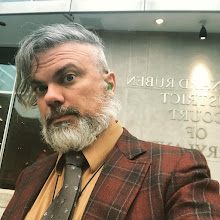Recognizing that this evil exists offends us as Christians. Seeing evil done violates our sense of justice. ``Its just not right,'' we say to ourselves. We become saddened and disappointed. Sometimes we despair. But sometimes we try to fix things and make them right. This last response is the driver for finding new modes of government by the Christian. But the cardinal problem is not the mode of government, but what lies in the hearts of both the governed and governors. Malice, evil and hatred are not problems that political science can conquer. Political science may be able to manage the consequences of evil, injustice, to a greater or lesser extent but political science can never root out malice, evil and hatred from the human condition.
So this desire by the Christian to bring injustice to an end can never be fulfilled. At best it can only be given a taste of justice if a mode of government can be found that manages evil to a great extent. Far more likely, however, is that it will be frustrated. And at worst, if a particularly poor mode of government is attempted, it will result in far more injustice. When the last of these obtains, the mode of government which is an attempt to make society into a flourishing and complete whole, only succeeds in making a society less of what it ought to be.
This same struggle goes on in our very souls. As Christians we sense that we are somehow not complete. We long to be made whole. We desire to have an abundant life, to act in a fashion worthy of creatures made in the image and likeness of God. And, through the grace of God, we can begin to approach such a mode of being. The difficult part, however, is that this process will not be made complete until judgment day. Until then we will be frustrated by our own thoughts, words, actions and choices. We will also be frustrated by events outside of our control. We must struggle through a world that is fundamentally broken by the bad choices of thousands of generations.
This desire to be made whole sometimes lead to frustration, especially in light of Orthodox teachings about God. The prayers sung by the priest during the Divine Liturgy of Saint John Chrysostom present a challenge to the Christian whose longing remains unfulfilled. The Prayer of the First Antiphon reveals God in the plenitude of His power.
O Lord our God, whose might is incomparable, whose glory is incomprehensible, whose mercy is infinite, and whose love of man is ineffable, do thou thyself, O Master, in thy tenderheartedness look down upon us and upon this holy house, and grant us and those who pray with us thy rich mercies and compassion.Then in the Prayer of the Second Antiphon, the relationship of the Christian to God is revealed.
O thou who hast bestowed on us these common and accordant prayers, and dost promise that when two or three are gathered together in thy name, thou wilt grant their requests, fulfil even now the requests of thy servants as is expedient for them, granting us in this present age the knowledge of thy truth, and in that to come, life eternal.In the divine liturgy, God is first revealed as being a good God of infinite mercy and then Man is revealed as the object of Gods mercy and that God grants the requests of Christians, as may be expedient for them.
That teaching, at least for me, is a hard teaching. To know that God will grant all of our prayers, all of of our hopes and dreams, but only inasmuch as they are expedient for us as individuals, inasmuch as they are appropriate for us fulfilling our purpose in the divine economy, is to know that there there is a certain sense in which we live in the best of all possible worlds. In this world, whatever struggles and challenges we are presently going through as Christians, those challenges and struggles are the exact challenges and struggles that God in his infinite wisdom and immeasurable mercy sees most likely to bring us to perfection as human beings created in His image and likeness. The frustrated longing we feel to create justice is sometimes unfulfilled because either the way we would bring this justice about is not proper or the `just' end that we seek is not so just after all. Our longing to be fulfilled in these situations is simply not part of Gods plan and is not to be.
There is clearly a danger that this view can lead to despair, especially when our present struggles and challenges seem almost too much to bear. But it need not. As human beings, we have to face that we are not always cognizant of Gods plan. Outside of an angelic visitation or direct experience of God, we cannot know with certainty whether our attempts to bring about justice will conclude in the end that we seek. We do not know if God is testing our resolve. We do not know if God is throwing up obstacles to get us to switch our course. We can only pray and hope and seek to become more fully the image and likeness of God, to become closer to the perfect man. And there come times when we must accept that those things which we long for will not be given to us. For me, those are the hardest times of all, when I must recognize that this longing inside of me is going to remain unfulfilled in this life and I must be content to wait until the next to be made whole.
